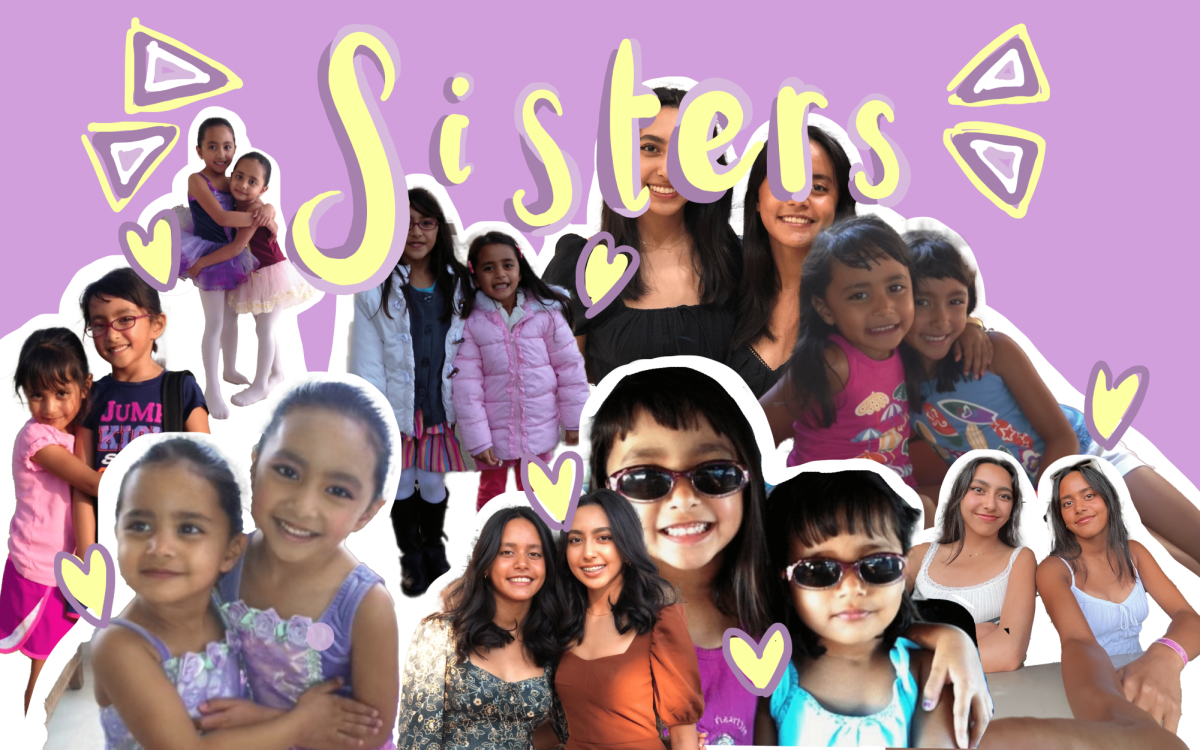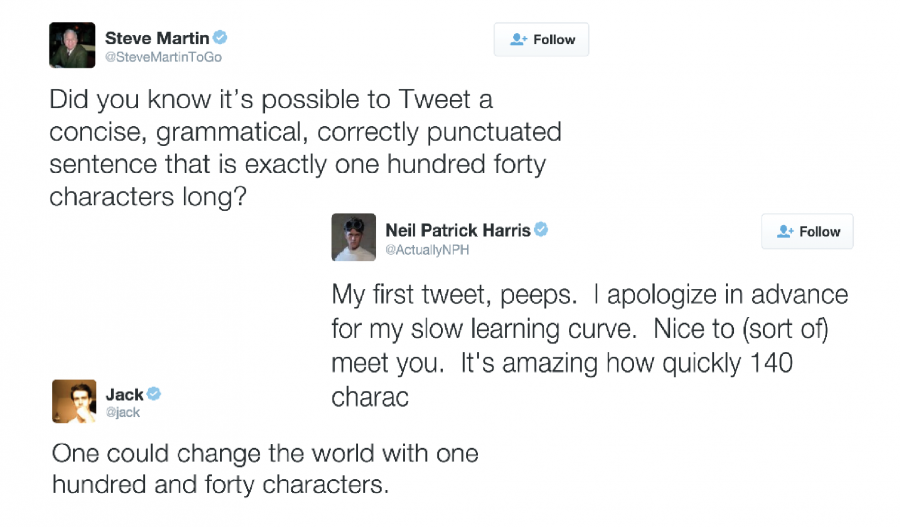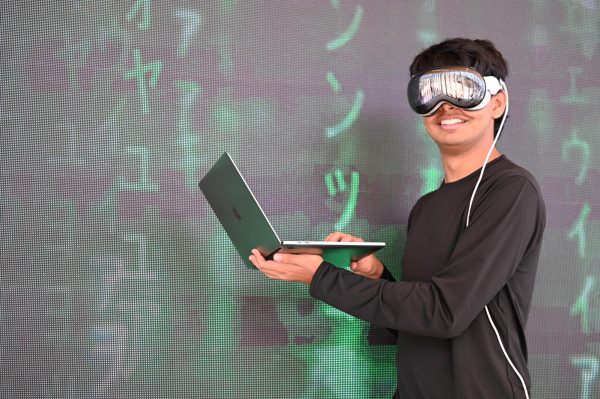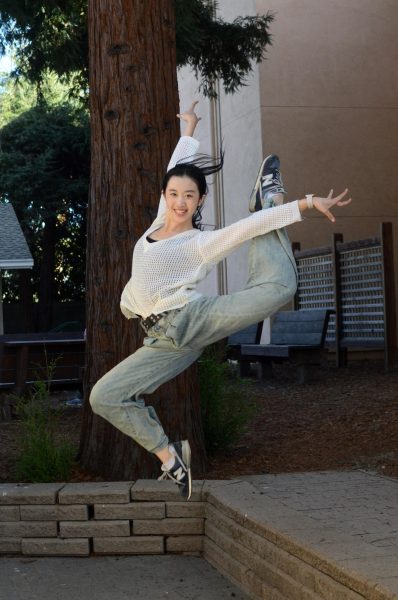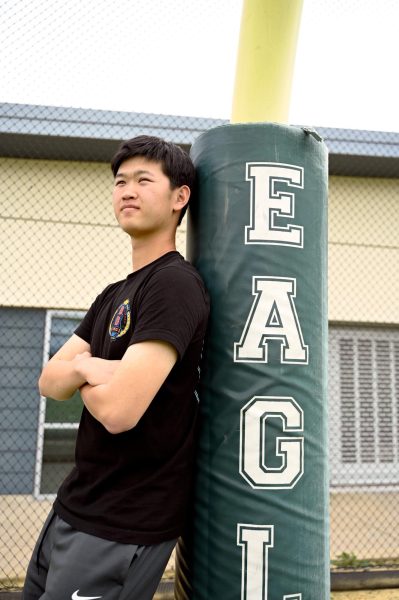Twitter considers changing to longer character limit
January 31, 2016
Originally a social networking service focused on sending 140 character “tweets,” Twitter is considering revising its character limit to allow for up to 10,000 letters.
The model is designed so that the first couple hundred symbols are displayed, with the user clicking the tweet to display more information. But what’s so special about the number 140?
Contemporary technologies influenced the the original limit. Cofounder Jack Dorsey tweeted that the original limit was influenced by cell phone texts that only allowed for 160 characters. The company decided to allocate 20 of the characters to store the username.
However, part of Twitter’s appeal to the younger generation lies in its brevity and short word count.
“I just started [a Twitter account] and some of the positives are that I can keep up with the general social media trends,” Amy Jin (10) said. “You can tweet short messages, and having a word limit has an advantage in that you can send messages quickly.”
As Twitter extended its reach internationally, it had varied promise among different languages. For instance, the limit offers non-alphabet based languages such as Chinese, a lot more freedom than those using the Latin script.
These limitations may have been responsible for a disparity in the number of users per country. For instance, four million Germans compared to 26 million Japanese own an account.
Other external pressures may have led to the extension of the limit. Twitter’s user base is substantially weaker than that of its competitors: a projected 310.2 million in 2016. In contrast, Facebook currently has 1.5 billion users.
Despite this move, various users expressed their opposition by arguing that it detracted from the company’s core characteristics. In a poll conducted by Telegraph, 63 percent of the readers responded negatively to the change. Indeed, it is altogether possible that extending the length of messages would make it more difficult for Twitter to differentiate itself from competitors, further weakening its position.
“I think [Twitter] will run into problems as people are given too much choice. It’s the same reason Netflix doesn’t allow for downloading movies even if it is capable of doing so,” Jonathan Hochberg (12) said. “It’s something called the paradox of choice, a psychological phenomenon, where having more options leaves you paralyzed. People are going to be thinking more about what they text [so] it won’t be that interesting.”
If Twitter decides to go through with this change, it will find it harder to differentiate itself from other social networking services. But that is balanced by its respective need to attract larger audiences.































![Setter Emma Lee (9) sets the ball to the middle during the match against Pinewood on Sept. 12. “[I’m looking forward to] getting more skilled, learning more about my position and also becoming better friends with all of my teammates, Emma said.](https://harkeraquila.com/wp-content/uploads/2023/09/DSC_4917-2-1200x795.jpg)



































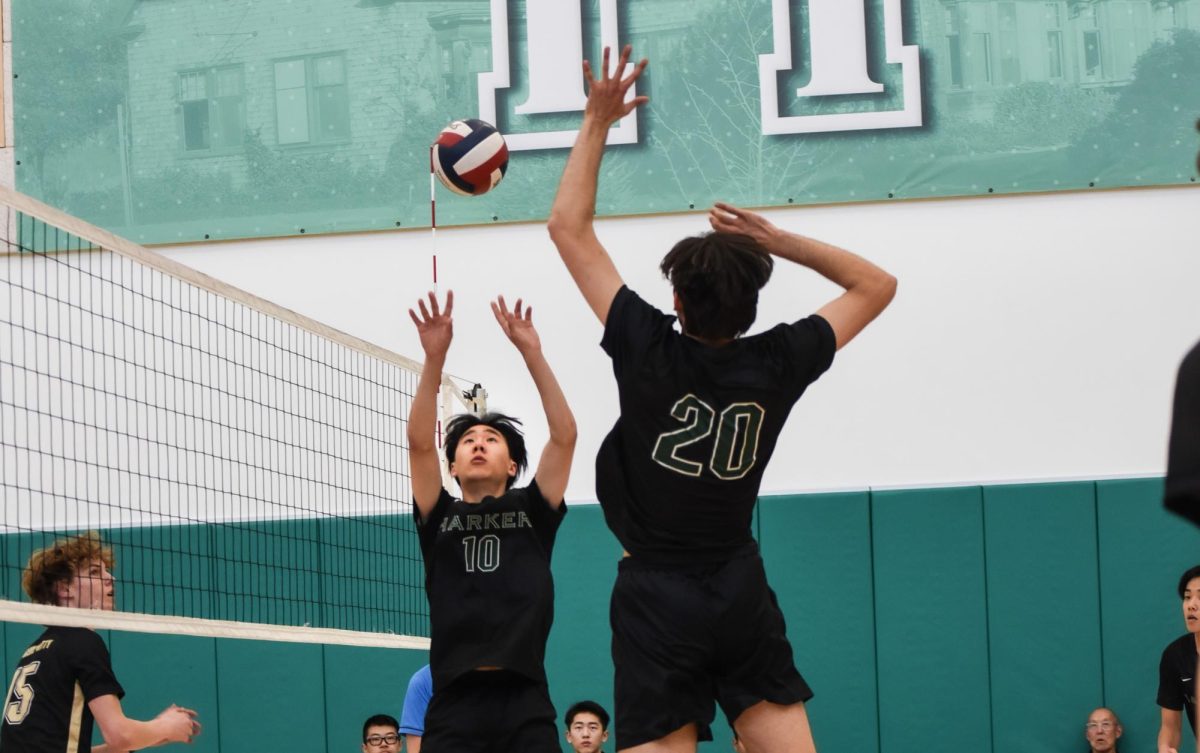

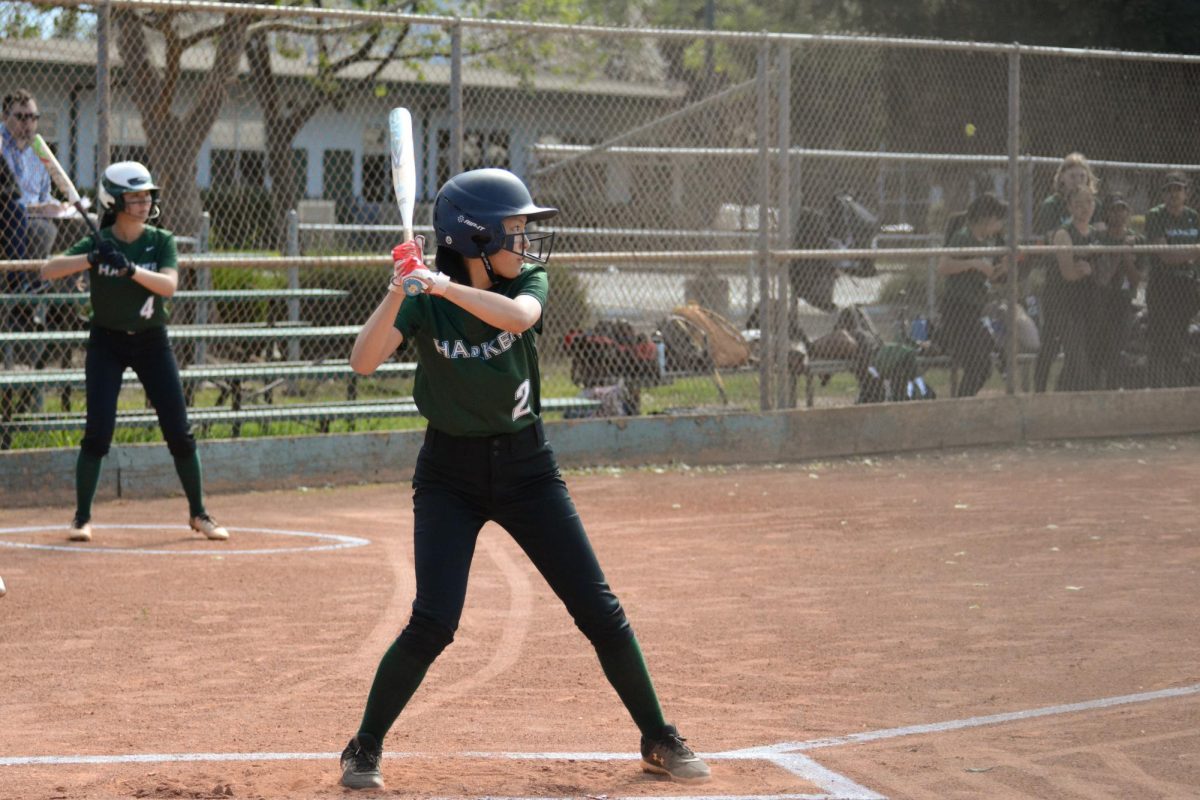









































![“[Building nerf blasters] became this outlet of creativity for me that hasnt been matched by anything else. The process [of] making a build complete to your desire is such a painstakingly difficult process, but Ive had to learn from [the skills needed from] soldering to proper painting. Theres so many different options for everything, if you think about it, it exists. The best part is [that] if it doesnt exist, you can build it yourself, Ishaan Parate said.](https://harkeraquila.com/wp-content/uploads/2022/08/DSC_8149-900x604.jpg)


![“Animation just clicked in a way. I had been interested in art, but that felt different. [Animation] felt like it had something behind it, whereas previous things felt surface level. I wasnt making that crazy of things, but just the process of doing it was much more enjoyable, Carter Chadwick (22) said.](https://harkeraquila.com/wp-content/uploads/2022/08/Screen-Shot-2022-08-16-at-9.44.08-AM-900x598.png)


![“When I came into high school, I was ready to be a follower. But DECA was a game changer for me. It helped me overcome my fear of public speaking, and its played such a major role in who Ive become today. To be able to successfully lead a chapter of 150 students, an officer team and be one of the upperclassmen I once really admired is something Im [really] proud of,” Anvitha Tummala (21) said.](https://harkeraquila.com/wp-content/uploads/2021/07/Screen-Shot-2021-07-25-at-9.50.05-AM-900x594.png)



![“[Volleyball has] taught me how to fall correctly, and another thing it taught is that you don’t have to be the best at something to be good at it. If you just hit the ball in a smart way, then it still scores points and you’re good at it. You could be a background player and still make a much bigger impact on the team than you would think,” Anya Gert (’20) said.](https://harkeraquila.com/wp-content/uploads/2020/06/AnnaGert_JinTuan_HoHPhotoEdited-600x900.jpeg)

![“Im not nearly there yet, but [my confidence has] definitely been getting better since I was pretty shy and timid coming into Harker my freshman year. I know that theres a lot of people that are really confident in what they do, and I really admire them. Everyones so driven and that has really pushed me to kind of try to find my own place in high school and be more confident,” Alyssa Huang (’20) said.](https://harkeraquila.com/wp-content/uploads/2020/06/AlyssaHuang_EmilyChen_HoHPhoto-900x749.jpeg)













![“My slogan is ‘slow feet, don’t eat, and I’m hungry.’ You need to run fast to get where you are–you arent going to get those championships if you arent fast,” Angel Cervantes (12) said. “I want to do well in school on my tests and in track and win championships for my team. I live by that, [and] I can do that anywhere: in the classroom or on the field.”](https://harkeraquila.com/wp-content/uploads/2018/06/DSC5146-900x601.jpg)

![“I think getting up in the morning and having a sense of purpose [is exciting]. I think without a certain amount of drive, life is kind of obsolete and mundane, and I think having that every single day is what makes each day unique and kind of makes life exciting,” Neymika Jain (12) said.](https://harkeraquila.com/wp-content/uploads/2017/06/Screen-Shot-2017-06-03-at-4.54.16-PM.png)







